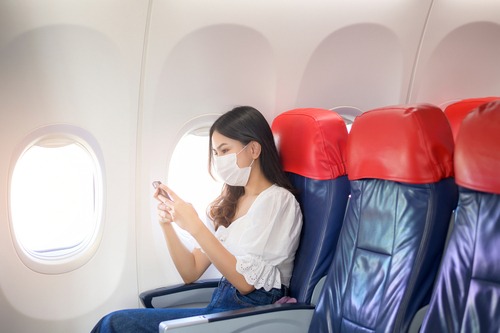
Leaders of the civilian aviation industry told Congress Tuesday that key ingredients of last year’s COVID-19 relief package were critical to keeping the industry afloat and urged the U.S. Senate to pass the latest version of the House-passed measure which includes some of the same provisions, particularly the Payroll Support Program (PSP).
“PSP has been a lifeline to the industry,” Nicholas Calio, president and CEO of Airlines for America, told the U.S. House Committee on Transportation and Infrastructure’s Subcommittee on Aviation during a hearing on COVID-19’s effects on the aviation industry. Calio told the panel that PSP allowed the airlines to access the private credit markets, continue to pay employees during last year’s depths of the halt in airline travel and kept those employees off the unemployment rolls.
“I hope the Senate will pass the bill quickly,” Calio told the panel.
Extension of the PSP, along with several other measures aimed at supporting the aviation industry, was included in the $1.9 trillion American Rescue Plan Act approved Saturday by the House of Representatives. The bill would continue the PSP for air carriers and their contractors, setting aside $15 billion in all. Of that, $14 billion is designated directly to air carriers and the remaining funds to contractors. The bill would extend the program through Sept. 30 from the current expiration date of March 31.
The House bill also includes $3 billion to fund a 50/50 cost-share program to help aerospace manufacturers and related operations recall or keep workers on the payroll that would be at risk of furlough as a result of the COVID-19 pandemic.
It will also provide an additional $8 billion in funding for airport infrastructure projects, $100 million of which would be designated for general aviation and non-primary airports.
The PSP, according to Capt. Joe DePete, president of the Air Line Pilots Association, kept workers online and on the payroll while preventing tens of thousands of workers from filing for unemployment or social security. He said PSP allowed the airlines to keep tens of thousands of pilots on the payroll, when to do otherwise would have required massive investments in retraining those pilots or training new ones. He called on the Senate to pass the extension of the program.
“The program has been enormously important to us,” echoed Edward Bolen, president and CEO of the National Business Aviation Association.
Rep. Pete DeFazio (R-OR), one of the chief architects of the aviation provisions in the House bill, agreed with the industry witnesses and said he hoped the measures survive the Senate deliberations. “We created what I think is the most successful part of the CARES Act,” said DeFazio, chairman of the full committee, referring to last spring’s COVID-19 relief bill. He emphasized that no money was paid directly to airlines and the program has been scandal free. “At the same time, we saved tens of thousands, up to 100,000 jobs,” he added, suggesting the airlines “be ready for the return of the aviation industry.”
Lance Lyttle, managing director of the aviation division for the Port of Seattle, told lawmakers federal financing like that included in the House bill is critical for airports like his to be able to fund new infrastructure projects, “because we want to be ready when passenger traffic returns.”
“The path to sustainability is airport investment,” said Lyttle, who was speaking on behalf of the American Association of Airport Executives.
He said the key to restoring traveler confidence is for the constituent parties – the industry, the federal government and Congress – to adapt a cooperative approach.
Lyttle and other industry representatives spoke emphatically against proposals for airlines to require COVID-19 testing prior to allowing passengers to fly. “That would actually devastate the industry,” he said. Mandatory testing, agreed Calio, “would bring the market to a flat halt.”
Rep. Rick Larsen (D-WA), chairman of the subcommittee, asked about a bill he introduced in the last Congress and has reintroduced in the current Congress that would require the U.S. Department of Transportation to develop a National Aviation Preparedness Plan for emergencies like a pandemic. Rep. Garret Graves (R-LA) said such a plan would make more sense than having to eventually embark on a national recovery plan, as Congress is doing now.
Also testifying at the hearing were Heather Krause, director of physical infrastructure for the Government Accountability Office, and Peter Bunce, president and CEO of the General Aviation Manufacturers Association.